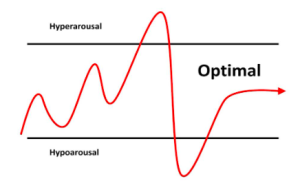Resilience is an important characteristic to have in every area of life. It promotes higher levels of motivation and determination, enhances self-esteem, and increases confidence by proving to yourself that you can overcome challenges that you face, both big and small. Whether you’re an athlete, working professional, or trying to navigate the challenges of parenting, here are a few ways resilience can improve performance in various roles:
Athlete
- Overcoming Setbacks and Injuries
- Maintaining Focus Under Pressure
- Handling Performance Slumps
- Managing Stress and Anxiety
- Building Stronger Work Ethic
- Enhancing Adaptability
- Fostering Team Cohesion
- Promoting Long-Term Success
Working professional
- Navigating Challenges and Setbacks
- Managing Stress and Preventing Burnout
- Adapting to Change
- Maintaining Focus and Productivity
- Building Stronger Relationships
- Enhancing Problem-Solving Skills
- Boosting Career Advancement
- Promoting Work-Life Balance
- Cultivating a Growth Mindset
- Inspiring and Leading Other
Parents
- Managing Stress and Anxiety
- Handling Parenting Challenges
- Fostering Emotional Stability
- Adapting to Change
- Maintaining a Positive Family Environment
- Balancing Responsibilities
- Promoting Self-Care
- Cultivating Problem-Solving Skills
- Enhancing Patience and Empathy
- Building Stronger Family Bonds
 The Window of Tolerance
The Window of Tolerance
Before we look at how we can increase resilience, it is important to understand factors that impact resilience and what the possible outcomes are. The window of tolerance (See picture) was initially developed by Dr. Dan Siegel as a way to understand hyper and hypo zones of arousal and how those zones interfere with our ability to effectively manage and cope with daily life stressors. So how do we know when we are leaving our optimal zone for performance? When we are in the window of tolerance or the “optimal zone” we feel safe and confident in our abilities. However, when faced with adversity or challenges we risk leaving that optimal zone and getting into a hyper or hypo zone of arousal.
When in a hyperarousal state we are in an increased state of responsiveness which can lead to increased feelings of anxiety, anger, or frustration and often lead us feeling out of control. In this state we are more likely to have a fight or flight response to stress or trauma.
When in a state of hypoarousal we are in an abnormal state of responsiveness which can lead to feeling overwhelmed, unmotivated, or depressed and, just like with hyperarousal, often leads to feeling out of control. In this state we are more likely to have a freeze response to stress or trauma. The window of tolerance can shrink when exposed to stress or trauma but it can also expand through intentional, consistent, and positive behaviors!
How to Increase Resilience
In today’s fast-paced world, building resilience is essential for navigating life’s challenges and expanding our window of tolerance. Fortunately, practices like meditation, deep breathing, and mindfulness can significantly enhance your ability to cope with stress and adversity. Here’s how you can integrate these techniques into your daily routine to foster greater resilience.
- Embrace Meditation for Mental Clarity
Meditation is a powerful tool for increasing resilience by calming the mind and reducing stress. Setting aside just 10-15 minutes a day for meditation can help you develop greater emotional stability and clarity. Find a quiet space, sit comfortably, and focus on your breath or a calming mantra. Regular meditation helps you build mental strength, improve concentration, and manage stress more effectively.
- Practice Deep Breathing for Immediate Relief
Deep breathing exercises are a quick and effective way to manage acute stress. When you feel overwhelmed, try the 4-7-8 breathing technique: inhale through your nose for 4 seconds, hold your breath for 7 seconds, and exhale slowly through your mouth for 8 seconds. This simple practice helps activate your body’s relaxation response, lowers your heart rate, and calms your mind, providing immediate relief from stress.
- Cultivate Mindfulness for Present-Moment Awareness
Mindfulness involves paying full attention to the present moment without judgment. By practicing mindfulness, you become more aware of your thoughts and feelings, which helps you respond to stress more thoughtfully rather than react impulsively. Incorporate mindfulness into your daily activities by focusing on the sensations, thoughts, and emotions you experience in the here and now. This practice enhances emotional resilience and helps you maintain a balanced perspective.
- Develop Additional Coping Skills
In addition to meditation, deep breathing, and mindfulness, consider integrating other coping skills into your routine:
- Journaling: Write down your thoughts and feelings to gain clarity and perspective.
- Physical Exercise: Regular physical activity releases endorphins and helps reduce stress.
- Social Support: Connect with friends and family for emotional support and encouragement.
- Healthy Lifestyle Choices: Maintain a balanced diet, get adequate sleep, and avoid excessive caffeine or alcohol.
By combining these practices with a commitment to self-care, you can broaden your window of tolerance by enhancing your resilience and navigating life’s challenges with greater ease. Start small, be consistent, and watch as these techniques transform your ability to handle stress and build a more resilient you.
Embrace the journey to resilience today—your future self will thank you!




